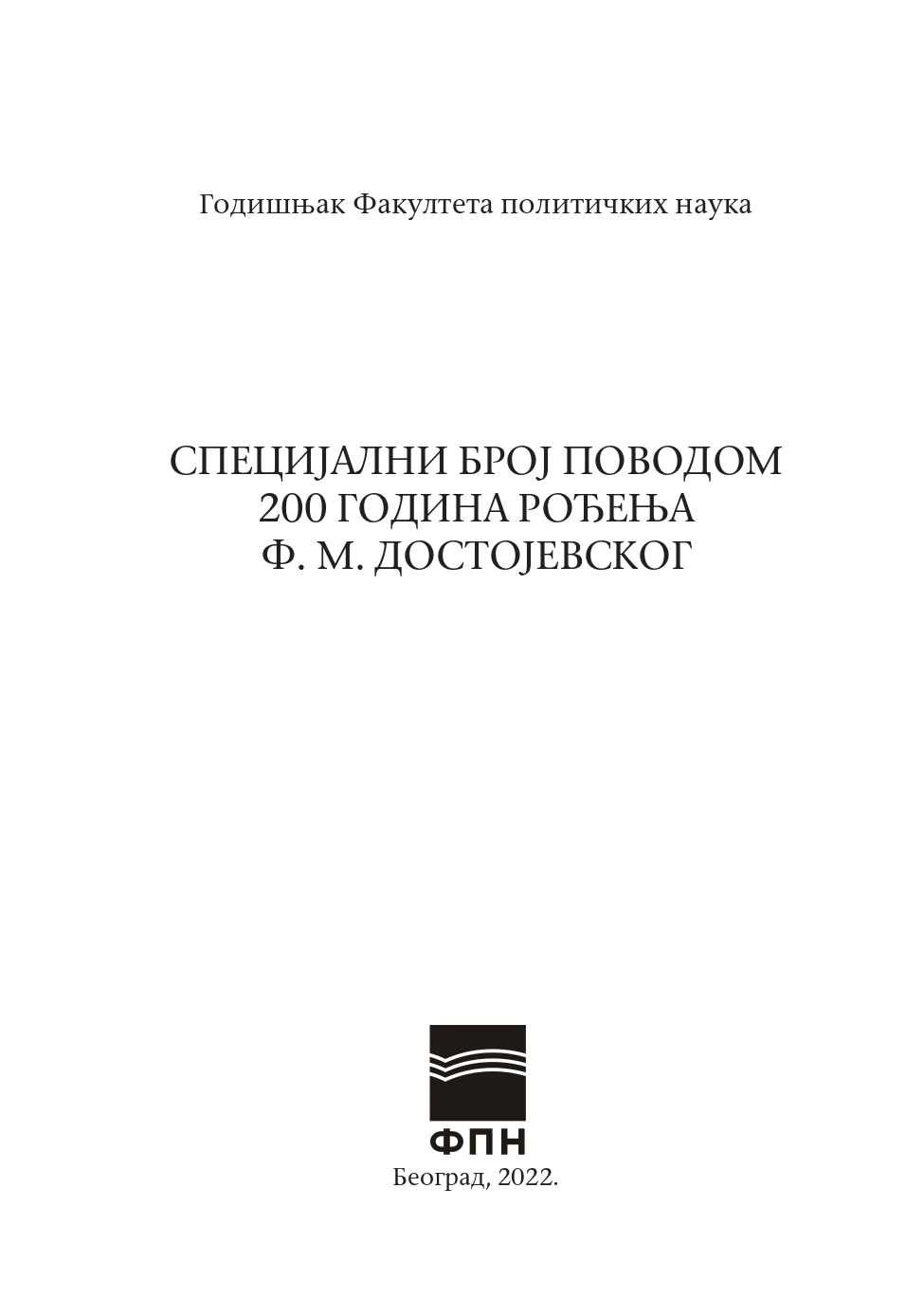Русија и Запад у делу Достојевског (Записи из подземља, Зли дуси и Браћа Карамазови)
RUSSIA AND THE WEST IN DOSTOEVSKY’S WORK: NOTES FROM THE UNDERGROUNG, THE DEMONS AND THE KARAMAZOV BROTHERS
Author(s): Tamara ĐermanovićSubject(s): Philosophy, Language and Literature Studies, Literary Texts, Studies of Literature, Russian Literature
Published by: Fakultet političkih nauka Univerziteta u Beogradu
Keywords: Dostoevsky; Russia and the West
Summary/Abstract: In 1862, Dostoevsky traveled for the first time through the Western Europe, which enabled him to have direct contact with the real life of the Western world, whose literature, art and culture he already knew well. In the fall of the same year, he writes Winter Notes on Summer Impressions, where the writer’s clearly negative attitude towards the West emerges for the first time, primarily because of the materialism and alienation he attributes to Western society. Two years later, in the Notes from the Underground, where the critique of the rationalism and positivism (which both caused Enlightenment) of the European world appears as the goal of Dostoevsky’s worries. The Demons, written almost two decades later, offers a deep analysis of a division of the Russian society of that period: Slavophiles, Westerners, liberals, nihilists, populists, anarchists. Finally, the The Brothers Karamazov raises deep ethical, philosophical, and existential questions faced by Russia and the West, according to Fyodor Mikhailovich. The three generations of the Karamazovs can be interpreted as three different moments of Russian history: its present, past and future.
Journal: Godišnjak FPN
- Issue Year: 2022
- Issue No: Spec.
- Page Range: 13-28
- Page Count: 16
- Language: Serbian

